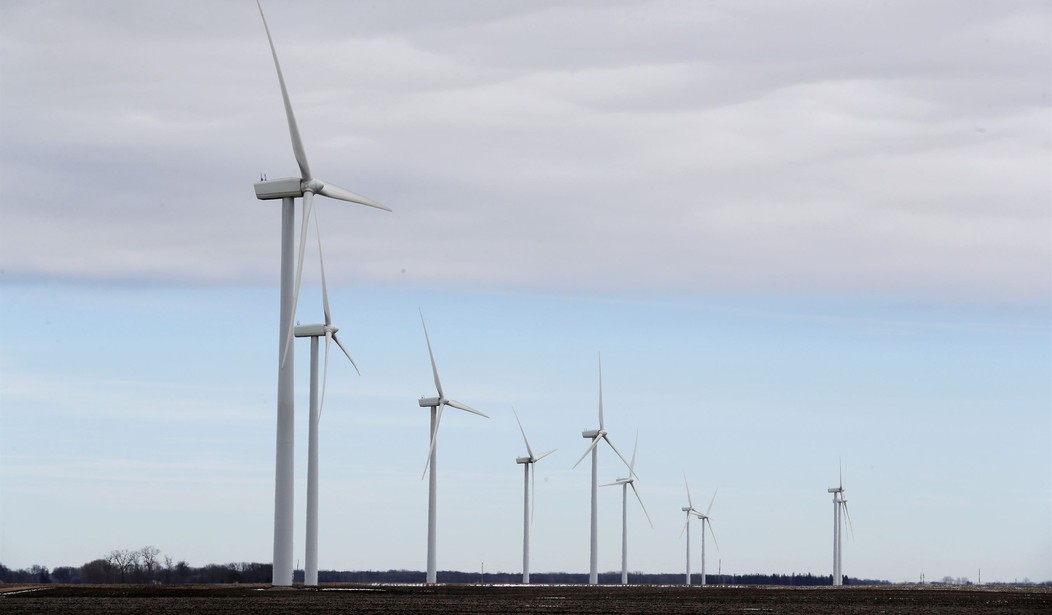It’s no secret that Europe long ago ceased embracing Judeo-Christian faith and values. In its place, the Europeans have embraced environmentalism with evangelistic fervor. Nations throughout Europe have turned their backs on fossil fuels and embraced the green agenda, pushing hard for an unrealistic goal of “net-zero” carbon emissions within arbitrary timelines. The area that was once the center of Christendom has replaced God with green.
Earlier this year, Canadian scientist and writer Martin Grünn put it this way: “Environmentalism has seeped into nearly every nook and cranny of day-to-day life in the developed world… Compliance is expected, with laggards publicly shamed and/or faced with activist onslaughts.”
But Europe is beginning to reap the consequences of the green embrace, and it doesn’t look appealing. The combination of this enviro-religious fervor and the energy shortages that Russia’s invasion of Ukraine has brought about has created dystopic conditions and dire predictions for Europeans.
Last week, Spain’s government announced a new measure that limits thermostat settings in public buildings to no lower than 27°C (80.6°F) in the summer and no higher than 19°C (66.2°F) in the winter. When the government heard backlash, it exempted “hospitals; universities, schools and kindergartens; and hairdressing salons” from the rule.
Two weeks ago, the German city of Hanover implemented a ban on hot water and central heating in all public buildings — the first municipality on the continent to do so. The ban includes pools and gyms. Other measures under consideration amid an “imminent gas shortage” include turning off public fountains and nighttime lighting at public buildings.
“These measures could well become an annual occurrence between April and September following a controversial demand from the EU in Brussels on Tuesday, July 26, for member states to reduce their consumption of gas by 15 per cent,” reports Chris King at EuroWeekly. “With some exceptions, thermostats in public buildings will also be set at just 20C (68F).”
Related: Britain Experiences Record Heat and Fires
The natural gas shortages accompany a summer of intense heatwaves that have brought restrictions on outdoor events as well as dry conditions that are causing European rivers to dry up.
The future doesn’t bode well for Europeans either. The government of the UK, already dealing with an acrimonious leadership contest among the ruling Conservative party, has developed an emergency plan for an energy worst-case scenario that includes potential blackouts in January.
“Under that outlook, below-average temperatures and reduced electricity imports from Norway and France could expose four days in January when the UK may need to trigger emergency measures to conserve gas, they said,” reports Bloomberg.
But don’t worry, the government swears it won’t happen in Liz Truss’ or Rishi Sunak’s Britain.
“The scenario is ‘not something we expect to happen,’ the government Department for Business, Energy and Industrial Strategy said in a statement,” continues the Bloomberg report. “’Households, businesses and industry can be confident they will get the electricity and gas they need.’”
Blackouts in the UK would remind Britons of the 1970s when it was common for businesses to either close because of no electricity or attempt to do business in the dark.
On 1973/74 👇
Wasn't aware of pub power listings! https://t.co/lidZptsFWJ
— Andy Bruce (@BruceReuters) August 10, 2022
BONUS: Some @ReutersConnect footage of London in December 1973, when shops tried to keep going with no electricity pic.twitter.com/jObLks62qN
— Andy Bruce (@BruceReuters) August 9, 2022
Even if British households don’t have to put up with no electricity in the dead of winter, projections show some sticker shock when power bills arrive.
“Consulting firm Cornwall Insight has warned that energy bills in a typical U.K. household could triple next year, reaching £4,266 ($5,208),” notes MarketWatch.
The U.S. is creeping in that direction as well, but we could stand to learn the lessons that Europe is learning before we have to pay for them ourselves. We’re not.
The Biden administration has hobbled American energy independence and offers flippant suggestions that all our problems would be over if we all bought electric vehicles. The infrastructure to charge such vehicles nationwide isn’t there, which makes travel difficult with electric cars.
Charging them at home brings its own problems. In 2020, the Pew Trusts warned that adding electric vehicles to existing power grids that rely on fossil fuels puts increased strain on the grid.
“A U.S. Department of Energy study found that increased electrification across all sectors of the economy could boost national consumption by as much as 38% by 2050, in large part because of electric vehicles,” Pew reported. “The environmental benefit of electric cars depends on the electricity being generated by renewables.”
We’ve also seen a slew of articles this spring and summer sounding the alarm on potential blackouts throughout the United States. Yet the Biden administration thinks we all need to buy expensive electric vehicles and strain the grid even more?
Maybe someday the U.S. will be able to handle its power needs without having to rely on fossil fuels. But that time is decidedly not now. Until we’re able to wean ourselves off of oil and rely on 100% clean sources of energy, America’s leaders need to avoid the problems that Europe is experiencing.










Join the conversation as a VIP Member